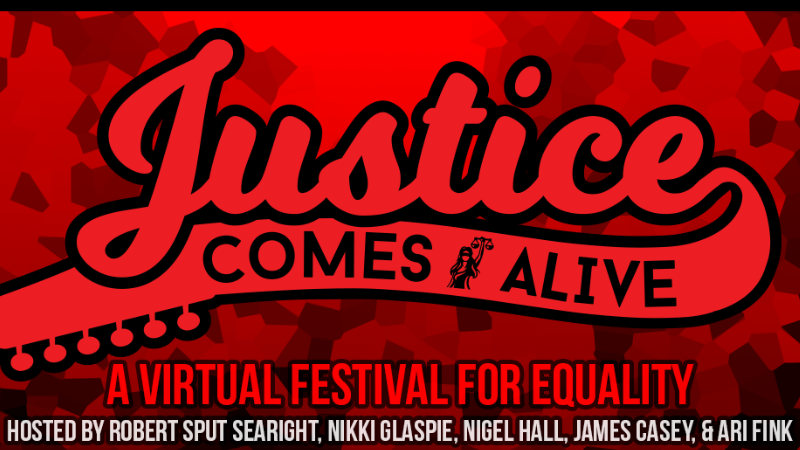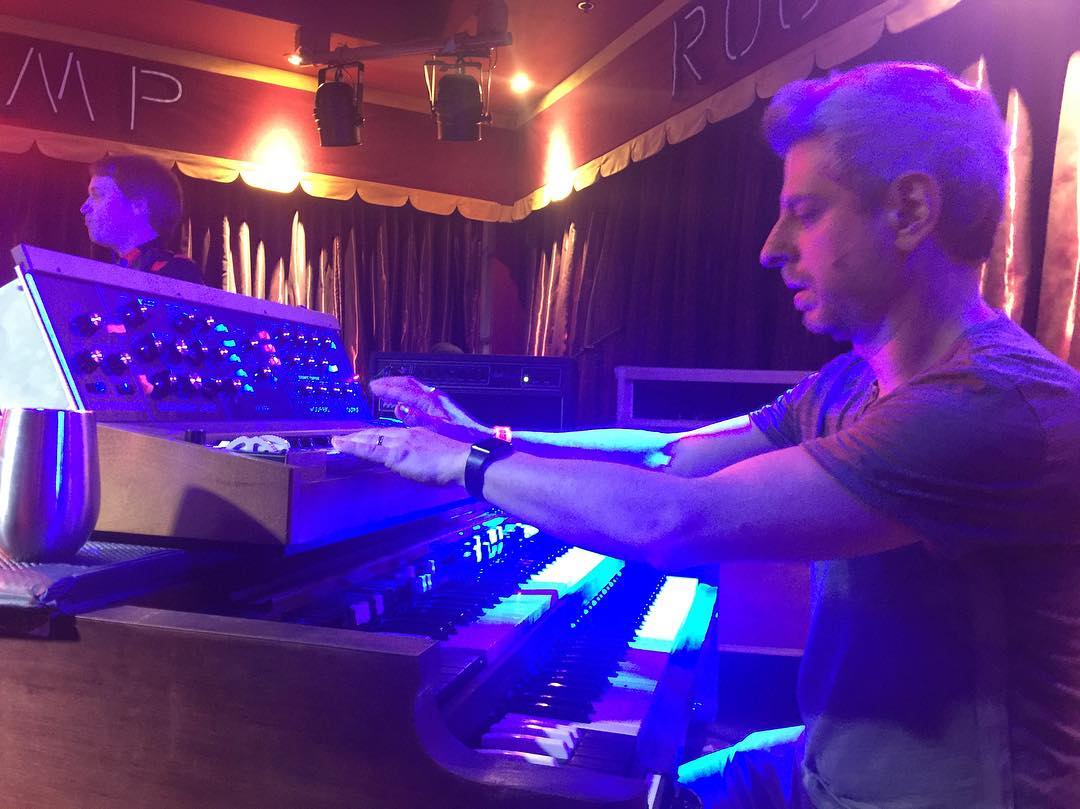Along with chatting with MiM0SA and Gramatik at SnowBall 2012, we also sat down and chatted with Adam Deitch and Borahm Lee, otherwise known as Break Science…
LMB: So you guys met in New York City on the underground hip-hop scene. What triggered your transition into working with guys like Derek (Pretty Lights) and moving into the electronic scene?
BL: Well we’ve always been fascinated with electronic influence in hip-hop music, in funk music, in dub music, in reggae music, and just using samples, using different sounds that came from everywhere you know what I mean. And then also it filtered into different rhythms and stuff too like different genres. We’ve always been aware of drum and bass and even though we might not have been super into techno early on, we were always aware of it and know it’s there. As the presence grew, the gap started bridging more between the analog instrumentalist and the electronic music world with its cold digital side. And that’s where we came in. We’ve always been fascinated by different sounds in different contexts, making it work.
LMB: So out of all of those electronic sub-genres, do you find yourself drawing from any one in particular?
AD: We love hip-hop, we love glitch, we love drum and bass. We like a lot of dubstep, a lot of drumstep, a lot of juke music, dirty south bounce music, East coast hip-hop, West coast hip-hop. That’s the kind of stuff we grew up on. I was going to raves when I was 16, when this was all illegal, getting broken-up and stuff. It’s fun for me to see this is so legit now.
BL: I mean, at this point all the genres that Adam names, you can flip them and make them groove and sound good. You can flip them into a way that you can really make your mark.
AD: Do something different.
BL: Yea you know, be creative with it. But use those as vehicles that have meaning.
LMB: We’ve seen a lot of guys who try to mix bass music with hip-hop, and I feel that you guys are some of the few that have really found that happy medium. Do you have a key or a secret to success as to where the boundary overlaps in a successful way?
AD: I mean we’re jazz musicians and we love songs, funk and jazz. In that, there are forms to music like the blues that are a vehicle for playing something. You can do whatever you want. Drum and bass has a form. Dubstep has a form, it’s got its drops and its builds and its snares.
BL: When I think about our music as opposed to other bass music that’s out there, what’s different about us is that we take a little more musical approach to it so it’s not an atonal thing or it’s not just one note that repeats the different bass sounds. We’re really changing keys, and we’re really aware of harmony and stuff like that. We really try to apply that and make the bass music musical, and not just bombastic sounds, which is cool also and which we love also.
AD: Because he’s (BL) a keyboard player and I’m a keyboard player we just feel that our contribution to this is to add the kind of the chords we add behind it, and the way the bass line goes with everything and the samples, that’s kind of our style. Just a little more depth, it’s a different thing than just the straight up, knock you on your face. We still wanna do that too, but we wanna put music in there also.
LMB: I feel you, it takes a certain musical talent and ability in terms of instrumentality to be able to put that into those techno tracks so to speak.
AD: Right we’re trying we’ve both been playing our whole lives.
BL: Yea and just keep in mind also that it’s our take on it. Maybe someone else that doesn’t have the jazz or musical background can still create something amazing. We’re definitely finding our sound more and more now that we’re getting into our third release this year, and we’re locking in on that. We definitely feel like that’s our path.
LMB: Talking about your second release, Monolith Code, is that a reference to 2001: A Space Odyssey?
BL: I mean it definitely it had a big influence on it. And just more the concept of it being a symbol of the evolution of consciousness. But it’s not just 2001. There are monoliths all around. The symbolism definitely runs very deep in our society and our cultures whether people realize it or not. So to me it’s just a towering symbol pretty much that is taking us to the next stage of who we are.
LMB: This album is really different in terms of the sound of it from the last one. What’s in store for future Break Science releases?
AD: We played two songs tonight, brand new stuff that we never dropped. One is kind of on some chill just vibey stuff and the other one we did is almost like a rock song. Kind of like arena rock with synths. There are a lot of different ways to approach electronic music now, especially with the use of samples and we have a lot of musician friends that’ll come through and do some guitar stuff and we’ll put it backwards and forwards, run it through all kinds of amps.
BL: We’re excited to be able to explore a couple different kinds of vibes. With an EP it’s more of a statement and a phrase almost, more of a general cohesive idea. But with an album you can have a little more exploration. So like we were saying, we’re gonna be doing more chill stuff, but the chill stuff is still gonna hit hard and you can still dance to it. But you can still listen to it when you come home from the club and you’ve been listening to dubstep all night and you don’t want anymore dubstep. I think we’re still gonna be making bass music, but I’m gonna say it’s probably gonna be a little more… actually, I’m not gonna put any restrictions on it. It’s just going to be diverse. I’ll say it like that. We’re definitely going to be getting into some different things.
LMB: Are there going to be as many collaborations on this new one as the first one?
AD: Yea we’re gonna have a lot of guests.
BL: Vocalists, Instrumentalists
AD: We’re gonna use their stuff in different ways, not your traditional singing or rapping over a track. We’ll take their vocals and like—
BL: Turn ’em up side down
AD: —do all sorts of crazy stuff to it (laughs).
LMB: Is there anybody you’ve already worked with that you can share with us?
AD: You’ll have to wait and see man (laughs).
BL: There are a lot of people in the mix right now and when the final copy is cut and print, some people might be there, some people might not be there. I don’t wanna single anyone out.
LMB: Are there any acts you’re looking forward to?
AD: I’m looking forward to seeing Paul Basic. I haven’t seen him yet and he’s our labelmate. I haven’t even met him yet, but I’ll be at his show. We’re about to tour with him in March for our big tour with Gramatik. It’s Paul Basic, Gramatik, and us, so yea I’m psyched to see him, psyched to see all the PLM (Pretty Lights Music) guys.
BL: Snoop.
AD: Snoop is gonna be great, looking forward to that.
LMB: As far as being a part of PLM, do you find yourselves feeding off of each other creatively?
BL: You’re talking about the labelmates?
LMB: Yea.
BL: Oh, definitely.
AD: Everyone’s got their niche or their style and we all borrow pieces from each other you know. I’m a band guy, I grew up being in bands. Even if everyone’s in small groups or sole artists we still kind of feed off each other like a band. I hear what they’re doing or their originals and it’s like “ok, ok” so I’ll try to push it up.
BL: It’s just great to have such awesome musical peers that we’re connected through this umbrella label, which is such a strong label.
LMB: Great well that’s all for us, hope you guys enjoy the rest of the festival.
em>AD: For sure, definitely.





